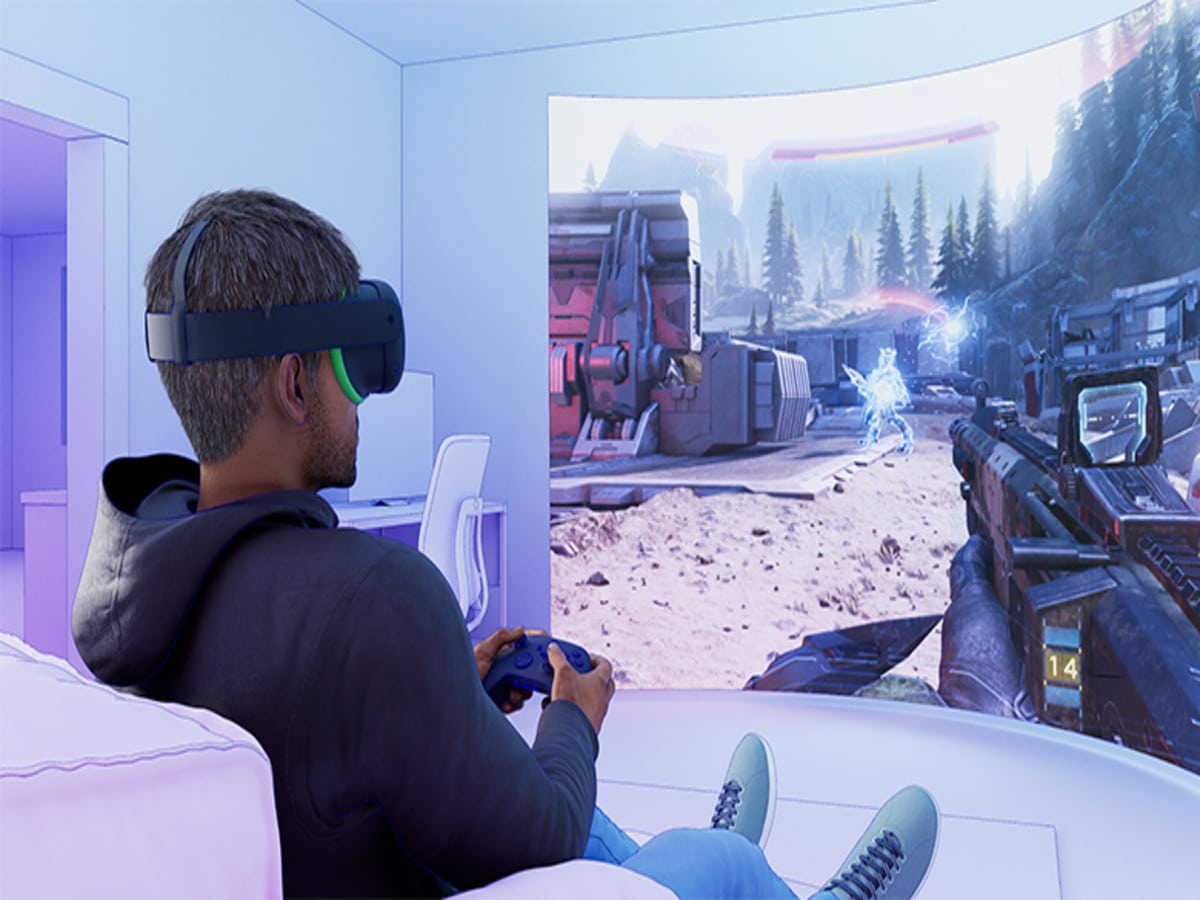
Published:
Readtime: 3 min
Every product is carefully selected by our editors and experts. If you buy from a link, we may earn a commission. Learn more. For more information on how we test products, click here.
Meta is adopting a strategy similar to Android, opening its Quest OS called Horizon OS to third-party VR headset makers and developers, giving “more choice to consumers and a larger ecosystem for developers to build for.” Tech titans Asus, Lenovo, and even Microsoft’s Xbox are the first to jump on board, confirming they’ll be developing new VR hardware powered by Horizon OS.
Now known as Meta Horizon OS, this open system will enable developers to access and leverage technologies like eye, face, hand, and body tracking, high-resolution passthrough, Scene Understanding, and Spatial Anchors as well as Meta’s custom frameworks and tooling, built specifically for mixed reality experiences.
RELATED: Despite Owning VR Headsets, Teenagers Aren’t Using Them, Study Suggests

As per Meta, this comprehensive toolkit will allow developers to “reach their communities and grow their businesses through the content discovery and monetisation platforms built into the OS.” The company also says that all future VR headsets will be able to connect via the Meta Quest app on iOS and Android devices. Underscoring the strategic importance of Horizon OS is its integration with the Horizon social layer. This 3D virtual open world lets users carry their identities, avatars, and friend groups across different virtual spaces.
Developers can leverage this integrated social network to build rich features into their apps. For hardware makers, using Horizon OS expands the reach of the Horizon network, which Meta intends to eventually monetise through targeted ads and in-world commerce. Mark Zuckerberg has long been vocal about wanting his company to be a more open platform than Apple. Reflecting this strategy, Meta is now actively promoting alternative app discovery methods, including increased visibility for its own experimental App Lab store, and even inviting Google to integrate the Play Store with Horizon OS.

In the announcement blog post, the Zuckerberg-led company also added that it’s working on a spatial framework for developers to simplify porting mobile apps to its operating system. As for new VR hardware, Asus, Lenovo, and Microsoft’s Xbox are already busy working on devices built on Meta Horizon OS. Asus is making a “performance-based” VR gaming headset under its Republic of Gamers banner, while Lenovo will develop mixed reality (MR) headsets that run on Meta Horizon OS for “productivity, learning, and entertainment.”
Lastly, a limited-edition “inspired by Xbox” Meta Quest headset is also coming, co-developed with Microsoft. Meta hasn’t shared all the details of its Horizon OS licensing agreements nor any release dates for the new VR hardware. However, the company did mention that all the new and upcoming hardware will use Qualcomm’s latest Snapdragon VR chips.
While announcing the big news, Meta chief Mark Zuckerberg said, “You can imagine a lightweight headset that pairs with your computer on your desk to provide the best work experience at home or anywhere you go. Or imagine one that’s fully focused on watching immersive entertainment like movies and videos with the highest resolution OLED screens out there.”































Comments
We love hearing from you. or to leave a comment.